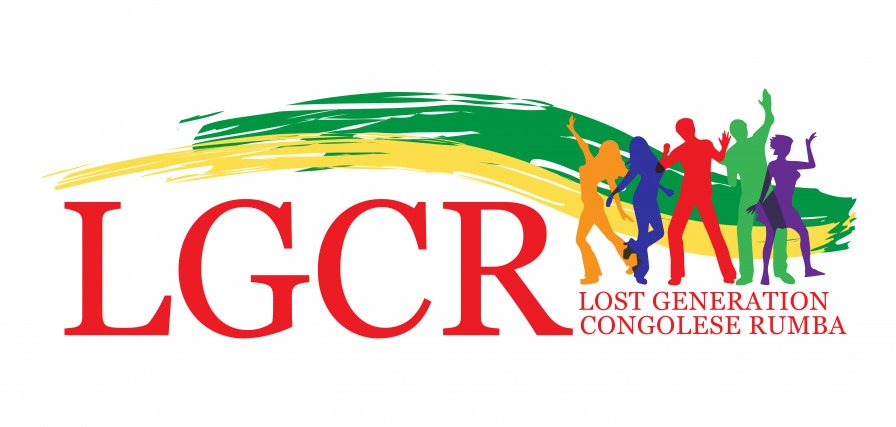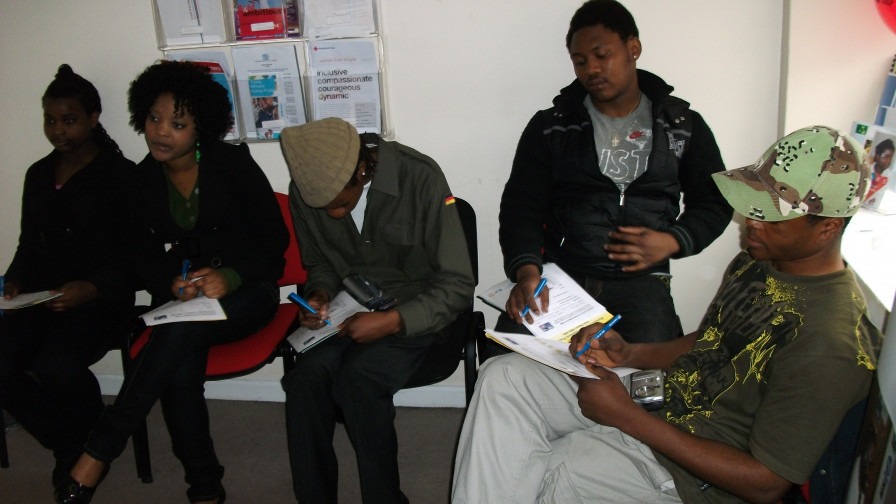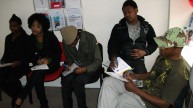Lost Generation Congolese Rumba

What is Lost Generation Congolese Rumba
Lost Generation Congolese Rumba (LGCR) is a project about making and listening to Congolese Rumba music by young Congolese refugees aged 16-25 living in Norwich in the East of England. Congolese Rumba is a popular genre of dance music that originated in the Congo Basin during the 1940s with strong similarities to Cuban son. The style gained popularity throughout Africa in the 1960s and 1970s
The project involved producing, listening and dancing to Congolese Rumba music by young Congolese refugees who have fled their country of Democratic Republic of Congo (DRC) due to civil war to settle in Norwich. Congolese Rumba plays important role in the social and spiritual life of Africans especially Congolese.
By bringing in Congolese Rumba music to young Congolese refugees, the project designed one of the ways of engaging with young Congolese refugees to make them feel at home in Norwich and to help them overcome the traumas of civil wars.
Project aim
To engage young Congolese refugees living in Norwich in making, listening and dancing Congolese Rumba music.
Target group
Congolese refugee children and young people who are not in employment, education or training (NEET), or who are at risk of becoming NEET due to circumstances affecting their educational engagement in Norwich.
Why this project is needed
This work is important because we want to incorporate cultural traditional music in engaging with young refugees as part of our work. Since Congolese Rumba plays an important role in social and cultural life of Congolese, we also want to use cultural music as part of counselling and healing process for young Congolese refugees with post-traumatic-stress disorder (PTSD). Music is sound therapy and is a powerful tool in relieving this crippling disorder.
Project activities
producing, listening and dancing to Congolese Rumba music using instruments such as guitar, Conga Drums, Maracas, Scrapers, Flute, Saxophone, Trumpet, etc Learning and developing skills and gaining accredited qualifications using Arts Awards and ASDAN Awards
Outcomes
Outcome 1: To improve young Congolese refugees’ listening and performance skills music-making
Outcome 2: To increase the capacity of staff to use Congolese Rumba music in their activities with young Congolese refugees.
Outcome 3: To improve understanding of using Congolese Rumba music genres in refugee support among refugee workforce and sector.
Project delivery
We carried out various activities in music making of Congolese Rumba by young Congolese refugees. In each weekly twohour session we began with warm-up exercises, playing a ‘mash-up’ of Congolese Rumba. This frame the sessions as musical and different from the usual refugee activities. Participants were given the opportunity to play with and explore the instruments, including drums and percussion, bass, electric guitar, and vocals, before being shown how to play basic rhythms on smaller and simpler versions of the main rumba band instruments. This included experimentation and improvisation in the early stages, with young Congolese refugees and staff encouraged to play the instruments. Over the course of the year we worked on performing simplified arrangements of Congolese Rumba, ideally a different track each month, with the last three months focusing on our own composition, including a concert – where all people came together and all other friends and families invited to watch and take part.
At the end of each session we sat down with the practitioners for half an hour discussing what music learning had taken place and how some of the pedagogical approaches could have been introduced using different instruments at different times. These 30 minute development sessions was also offered to the young people on a monthly basis, exploring and sharing practical ways of using the music collections of parents to engage in developmental music making in the home.
Another aspect of the Congolese Rumba is dance. The Congolese Rumba dance is what makes is interesting and why people want to watch it and participate in it. In every session, we taught Congolese Rumba dance to participants including young Congolese refugees and project staff. The dance was central to the music making, listening and performance.
Project impact
The project helped with workforce skills and professional development. As part of the project, our staff members participated in activities with young Congolese refugees, acquiring skills and expand their knowledge of how refugees respond to music as therapy. The staff members also improved their intercultural competence. This enabled them to provide services to a wider audience and more people to come to drop-in sessions with confidence. This means the organisation will grow and expand as more and more people use its service.
The questionnaires with young Congolese refugees show a great improvement in young people's listening skills with 76% of the 10 young people shows that they are better with listening to music making teaching.
Music leader's diary shows that an improvement in young people's instrument skills. The diary shows that young people were struggling at the beginning of the sessions with ony 10% doing well and the rest struggling. But by the end of the project, 89% of young people had shown great improvement in instrument skills.
Staffs' self assessment questionnaires show that there was a great improvement in the staffs' communication skills skills. We worked with 5 staff members and 3 music and instruments instructors. Out of a total of 5 staff, 3 strongly agree and 2 agree with the statement that the staff communication improved.
The practitioner's diary recording observation shows a great improvement in the organisation and staff motivation. The diary shows that staff have been motivated to work hard and to ensure the project is successful. Most information in the diary recorded the staff ready to welcome young refugees and provide them with anything they need to play music.The diary shows that all staff with the exception of one were positive about the project and the organisation working together to ensure young refugees are supported.


